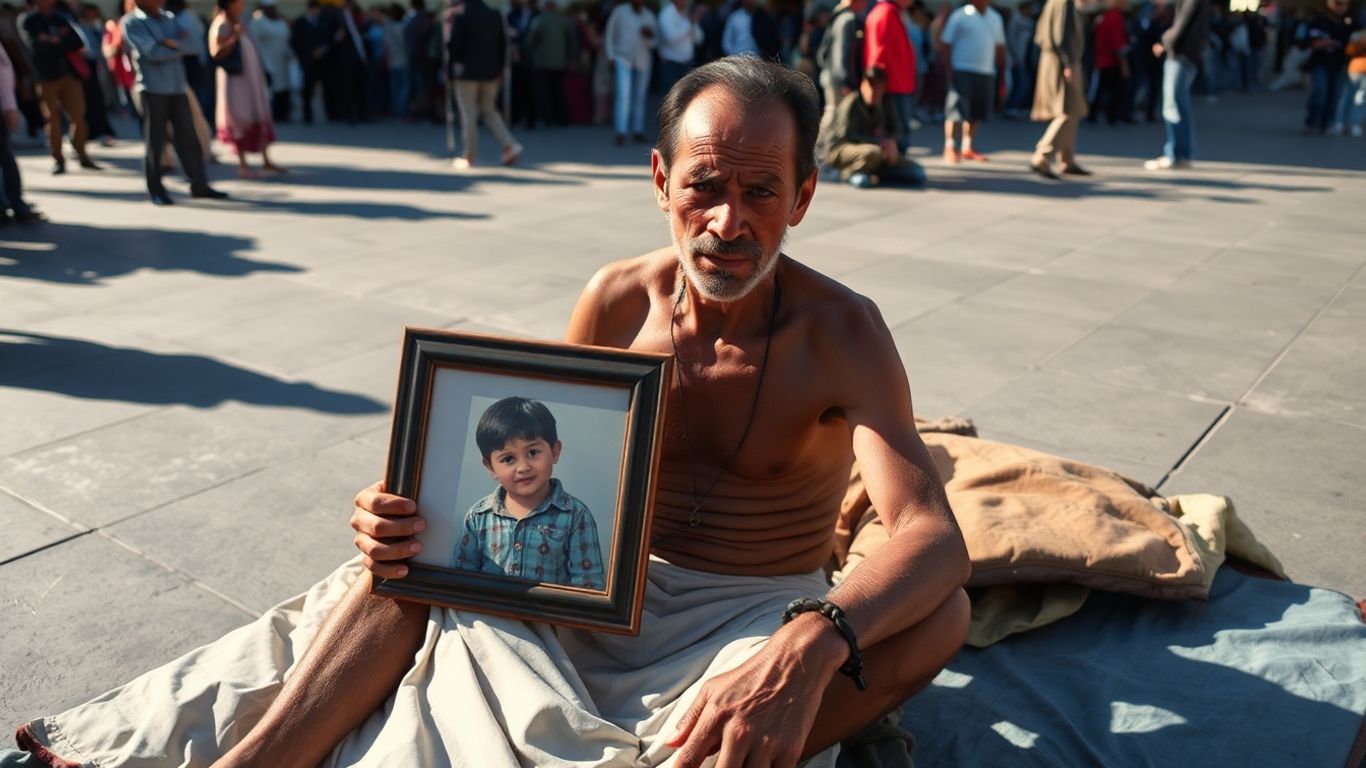A father’s relentless pursuit of justice for his son, lost in Greece’s worst-ever rail disaster, has ignited a wave of public support and sympathy. Panos Ruci has been on a hunger strike for nearly two weeks outside the Greek parliament, demanding answers and the exhumation of his 22-year-old son Denis’s remains to determine the true cause of death.
Key Takeaways
- A father is on a hunger strike demanding the exhumation of his son’s remains from Greece’s deadliest train crash.
- Families suspect undeclared chemicals on the freight train may have caused an explosion.
- Public support for the hunger striker is growing, with visits from politicians, students, and ordinary citizens.
- The prosecutor’s office has agreed to exhume the remains, but the father insists on toxicology tests.
- Allegations of lost evidence and insufficient investigation have fueled widespread protests and distrust in the government.
The Father’s Plea for Truth
Panos Ruci began his protest on September 15, camping outside the parliament building. His son, Denis, was one of 57 victims of the February 28, 2023, collision between a passenger train and a freight train near Larissa. Many families, supported by experts, believe that undeclared chemicals on the freight train may have led to an explosion, compounding the impact of the crash itself. Ruci’s anguish is further deepened by the uncertainty that the charred remains he received actually belong to his son.
"For two and a half years, I have been unable to find justice," Ruci told AFP, appearing exhausted but resolute. His vigil has drawn significant attention, with a constant stream of visitors including politicians, unionists, journalists, students, and ordinary citizens offering their support. He has been seen comforting those who break down in tears, urging them to remain strong.
A Glimmer of Hope and Continued Demands
On Friday, the prosecutor’s office in Larissa announced it had agreed to Ruci’s request for an exhumation. However, Ruci stated he would not end his hunger strike until toxicology tests are also conducted, as reported by Ethnos TV. This demand underscores the families’ deep-seated suspicions about the freight train’s cargo and the thoroughness of the ongoing investigation.
Lingering Questions and Public Outrage
The train tragedy has exposed systemic failures in Greece’s rail transport safety and raised serious questions about the investigation. It has led to massive strikes and hundreds of protests over the past two years. A square behind parliament has become a memorial, with victims’ names painted in red and adorned with flowers and candles.
Victims’ families allege that crucial evidence was lost during the clearing of the accident site and that toxicology tests were not performed to ascertain the nature of the freight train’s cargo. Maria Karystianou, who lost her daughter, highlighted the absence of DNA tests in her daughter’s case file. Many, like Kostas Kapis, a supporter, express outrage that after two years, the exact cause remains unclear and political officials have not been held fully accountable.
While over 40 individuals, including the station master, have been prosecuted, and two senior officials, including a former transport minister, have been referred to the courts, they face only misdemeanor charges. This has further infuriated relatives. A 22-year-old student at the protest site lamented, "This disaster reflects the entire state of decay our country is in," criticizing the lack of trust in public services and the government’s handling of the aftermath. Polls indicate a widespread belief among Greeks that the government attempted to conceal evidence. The trial is not expected to commence before next year.
### Sources
- Train tragedy hunger striker captures hearts in Greece, Yahoo.
- Train tragedy hunger striker captures hearts in Greece | Nation, Community Newspaper Group.






